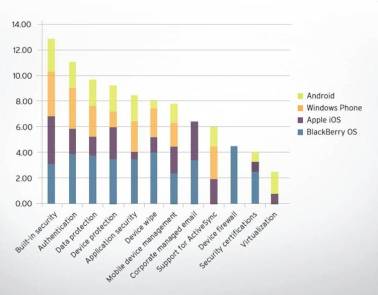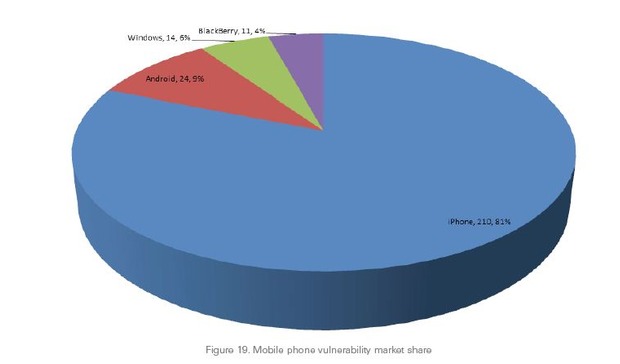Kaspersky Lab, a network security company from Russia, never revealing predictions related to the mobile world in 2012. At that time, the company is led by Eugene Kaspersky predicts cybercriminals will focus on the Android platform.
Kaspersky Lab is the prediction ultimately proved accurate. In January 2012, Kaspersky Lab claims to have less than 6,000 unique malware samples, specifically for the Google-made platform.
Then, in late 2012, Kaspersky Lab claims, has gained more than 43,000 malware targeting About 99 percent of smartphones and tablet devices based on Android.
While the threat to Symbian-based devices and a BlackBerry or mobile device that supports Java version is less than 1 percent.
Excerpted from a press release received KompasTekno, Thursday (28/03/2013), the biggest threat Android can be divided into three major groups, namely SMS Trojan that can steal money by sending SMS; adware, and exploits to gain root access are able to provide access full to the device and data stored in dalamnnya.
There is also a new mobile botnets with names Foncy allowing cyber criminals to control mobile devices. For this particular case, the creator of the botnet has been arrested by French police. The perpetrators are thought to have managed to earn 100 thousand euros, or about Rp 1.2 billion from the victims.
"Cyber criminals are really serious work on mobile devices as mobile devices usually contain more personal data is first stored in the PC. In 2012 we recorded thousands of new malware in order to steal information, take money from mobile accounts and bank accounts and spying on users. Unfortunately, the Android platform has become quite hazardous environments and in desperate need of protection, "said Denis Maslennikov, Senior Malware Analyst, Kaspersky Lab.
The attack on platforms other than Android
Although the number of new malicious applications for smartphones based on Symbian and Blackberry less, there are some applications that target the known victims bank account.
Last year Kaspersky Lab's experts noted a new version of the Trojan like Zeus-in-the-Mobile and SpyEye-in-the-Mobile is joining forces with malicious applications on the desktop to get the user's bank account. Mobile malware is here used to steal from a bank authorization messages, or mTAN code, which is needed to carry out the transaction.
Malware like this also hides the message from the bank so that the user does not receive the message. New users will be aware of the irregularities when checking their bank balances.

Popularity of a mobile operating system is not always better, especially if potentially invite attack by cyber criminals. Currently, the operating system for mobile phones is the most popular Android and iOS in the iPhone.

To find the answer, Sourcefire security research institute conducted a study titled "25 Years of Vulnerability" which was released in March.
His research is quite surprising. iPhone turned out to contain far more vulnerabilities than other mobile operating systems, including Android.
Yet all this is always referred to as the operating system is the least secure because it brings the open source Android.
Sourcefire states, the popularity of the iPhone and Apple's strict controls imposed on its application store would encourage cyber criminals to find loopholes in the iOS operating system.
A total of 210 security holes discovered in iPhones. That amount represents 81 percent of the overall number of vulnerabilities that exist in the mobile operating system, and is much larger than the total security holes in Android OS-based smartphone, Windows, and BlackBerry that figure only reached 19 per cent combined.

iPhone takes the mobile phone vulnerability market share over the past 25 years
(Source: SourceFire)
With the Android operating system, according to Younan, cyber criminals apparently less motivated to search for vulnerabilities in smartphones. This is due to the open nature of Android that allows hackers to enter or send the user to a malicious application.
On the other hand, it is difficult to do on iOS devices because Apple controls the applications that are circulating in his platform tightly. Therefore, the cyber criminals increasingly challenged to find security holes in Apple's own software system.
Author: Deliusno
Editor: Reza Wahyudi
Sources: http://tekno.kompas.com/.


Tidak ada komentar:
Posting Komentar